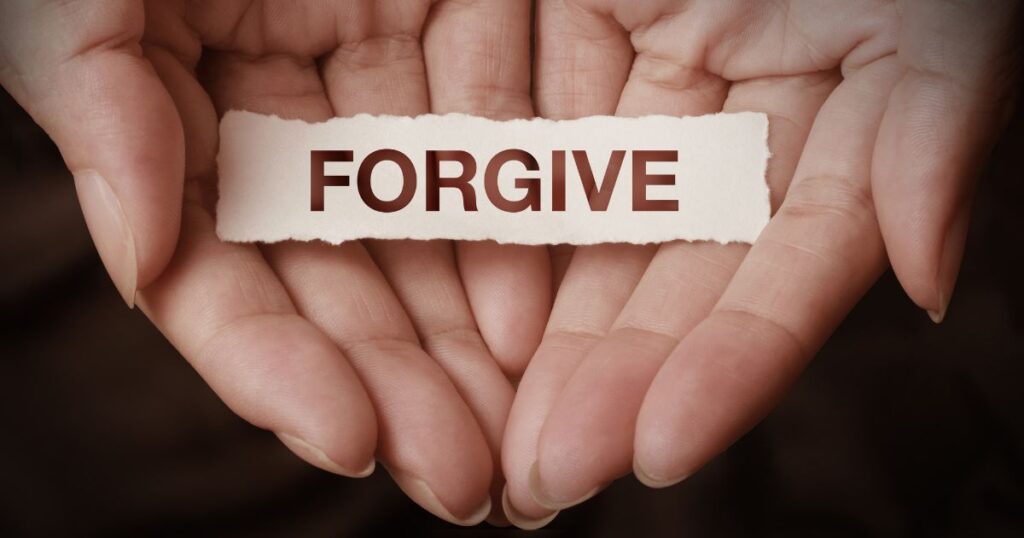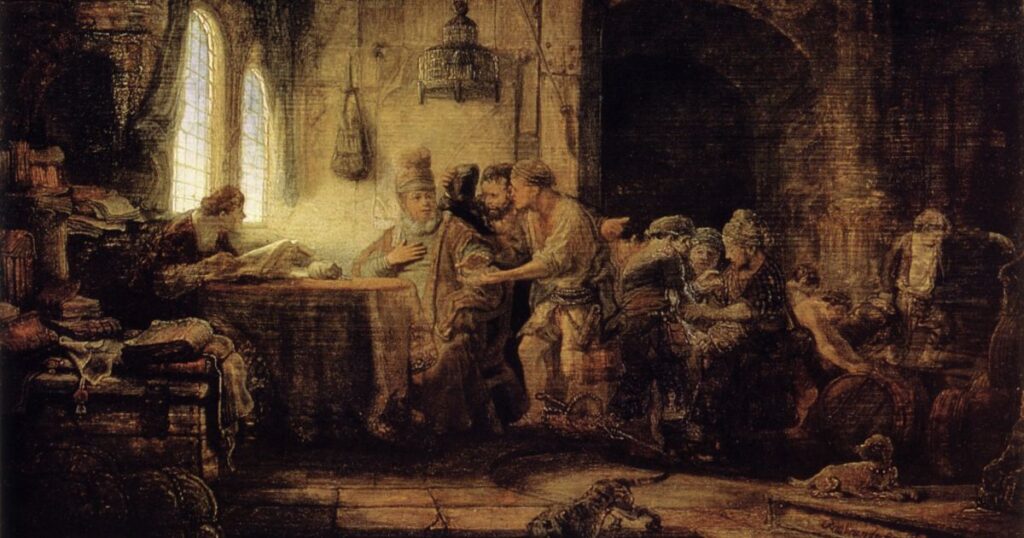God desires a close relationship with each of his children. By embracing the teachings within these parables, we can all cultivate a deeper connection with God and foster a stronger faith.
In this article, we’ll delve into the Parable of the Unforgiving Servant, which tells the story of a king who forgives a servant’s immense debt, only to discover that the servant refuses to forgive a fellow servant for a much smaller debt.
Jesus’ parables often guide us on how to approach God and interact with others, and this parable is no exception. If you’ve struggled to forgive someone who has hurt you, this story can offer valuable insights and guide you towards healing and forgiveness.
Let’s explore how this parable underscores the importance of extending God’s forgiveness to others.
Parable of the Unforgiving Servant: A Story of Forgiveness and Mercy

The Parables of Jesus are powerful teachings that offer practical insights into the Kingdom of God. Before unpacking this specific story, it’s important to note that many people confuse the Parable of the Unforgiving Servant with the Parable of the Two Debtors.
The Parable of the Unforgiving Servant appears in Matthew 18:21-35. It serves as Jesus’ response to Peter’s question regarding how many times one should forgive those who sin against them. This parable, also known as the Parable of the Unmerciful Servant, beautifully illustrates God’s forgiveness.
The Parable of the Two Debtors, found in Luke 7:40-50, centers on the connection between God’s forgiveness and our love for him. Jesus shares this parable after a previously sinful woman anoints him with expensive oil.
Now, let’s delve into the Parable of the Unforgiving Servant:

- Peter asks Jesus, “Lord, how often will my brother sin against me, and I forgive him? As many as seven times?” (Matthew 18:21, ESV): This question sets the stage for Jesus’ powerful teaching on forgiveness.
- Jesus replies, “I do not say to you seven times, but seventy-seven times” (Matthew 18:22): This emphasizes that forgiveness should be offered without limits. Regardless of how often others hurt or offend us, we are called to extend forgiveness.
- Understanding this teaching is easier than applying it in our daily lives. However, holding onto anger and refusing to forgive has detrimental consequences for our well-being. It can lead to bitterness, resentment, and a toxic emotional state. For true healing and wholeness, embracing forgiveness is crucial.
- After addressing Peter’s question, Jesus shares the story of the unforgiving servant to further illustrate his teachings on the Kingdom of Heaven:
- A powerful king decides to audit his servants and collect debts owed. One servant has a massive debt and possesses no means to repay it.
- The desperate servant pleads for mercy, and moved by pity, the king forgives him the entire debt.
- Later, this same servant encounters a fellow servant who owes him a much smaller amount. Despite receiving immense mercy himself, the unforgiving servant refuses to show the same compassion and demands immediate repayment.
- Upon learning of this behavior, the king is enraged. He revokes his earlier forgiveness, throws the unforgiving servant into prison, and demands full repayment of the original debt.
Decoding the Meaning: Key Takeaways from the Parable

Now, let’s dissect the meaning of the Parable of the Unforgiving Servant:
- The parable underlines the necessity of forgiveness. Just as God forgives us unconditionally, we are called to forgive those who sin against us.
- God’s forgiveness knows no bounds. He offers forgiveness to anyone who approaches him with a sincere heart.
- Many people who have received God’s forgiveness struggle to extend the same mercy to others. This highlights the importance of consciously choosing forgiveness, regardless of the offense or the individual who caused it.
- God longs for a close relationship with each of his children. Until we accept the forgiveness Jesus offers through his sacrifice on the cross, we cannot experience this closeness.
Lessons Learned: Applying the Parable to Our Lives
The Parable of the Unforgiving Servant offers valuable lessons that can guide us in our daily lives:
Lesson 1: Recognizing Our Need for Forgiveness:
- Like the first servant who begs for mercy, we all have a need for forgiveness.
- We must humble ourselves and acknowledge our shortcomings before God. This is the first step towards salvation and receiving his forgiveness.
Lesson 2: Understanding Forgiveness as a Gift:
- Just as the king offered mercy and released his servant, Jesus offers forgiveness to us.
God is waiting. Will you follow Jesus’ teaching and extend forgiveness today?
Sharing is caring!
